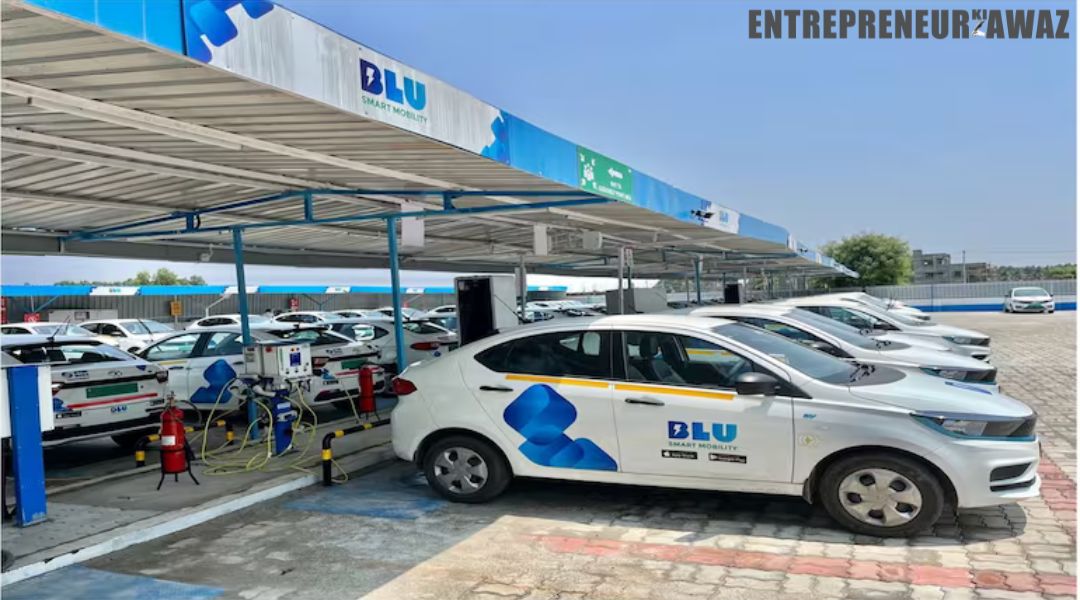The discussions take place as Gensol Engineering, the parent company of BluSmart, struggles with liquidity.
Since its parent company, Gensol Engineering, wants to get out of the capital-intensive industry, ride-hailing behemoth Uber is in the early stages of negotiations to buy BluSmart, an electric vehicle-based taxi service provider, according to sources who spoke to Moneycontrol.
The discussions start when Gensol Engineering, the parent company of BluSmart, has cash problems. BluSmart denies ever having such a conversation with Uber.
“BluSmart flatly rejects any talks or negotiations about being acquired by Uber. Such a development is completely theoretical and unfounded, according to the article. “As the top EV ride-hailing and charging infrastructure platform in India, BluSmart is committed to growing its business, extending its reach, and advancing sustainable mobility,” a BluSmart representative stated in response to Moneycontrol’s questions.
BluSmart is Gensol’s entry into the electric car market. Gensol is best known for its solar engineering, procurement, and construction (EPC) company. Offering fully electric taxis as a green option in the quickly expanding urban transportation market, BluSMart was positioned as India’s response to Uber and Ola when it was first introduced in 2019.
But the company has encountered several challenges throughout the years. BluSmart has experienced significant financial strain due to the high expenses of fleet acquisition, EV charging infrastructure construction, and driver incentives. Although substantial funds have been raised from investors, such as bp Ventures and other institutional supporters, profitability has proven difficult to achieve.
Uber chose not to comment on the purchase. Economic Times was the first to report on the development.
When BluSmart first started out, it set itself out as a high-end, flat-rate service that offered cleaner, more environmentally friendly transportation choices. To maintain steady demand, it also placed itself strategically in Bengaluru and Delhi-NCR, concentrating on corporate clients and airport transfers.
But there is also more competition from wealthy rivals like Uber and Ola, which have also increased their fleets of electric vehicles. Instead of depending on driver-owned vehicles, BluSmart owns and manages its fleet, which has resulted in a large rise in capital investment compared to its competitors.
Furthermore, the company’s reliance on government incentives and subsidies to promote EV adoption has had both positive and negative effects. Its operations are under further strain as a result of growing financing costs for EV purchases and subsidy delays. One of the main causes of Gensol’s intention to reevaluate its position in the company may be the company’s difficulties in obtaining new capital, according to recent sources.
In addition to donations from the founders and the leadership group, the company raised about $24 million in 2024 from its current investors, including BP Ventures.
Anmol Jaggi, Punit K. Goyal, and Puneet Singh Jaggi formed the EV company in December 2019 with the goal of offering the sizable Indian market a new, environmentally friendly ride-hailing alternative. To far, the company has raised $109 million in seed and Series A financing.
According to BluSmart, its yearly revenue run rate has surpassed $50 million, and it is expanding at a rate of over 100 percent annually. With 35 charging stations spread around Bangalore and Delhi-NCR, it boasts an ecosystem with more than 4,000 EV chargers. In addition, it operates about 6,000 EVs for ride-hailing.

Leave a Reply